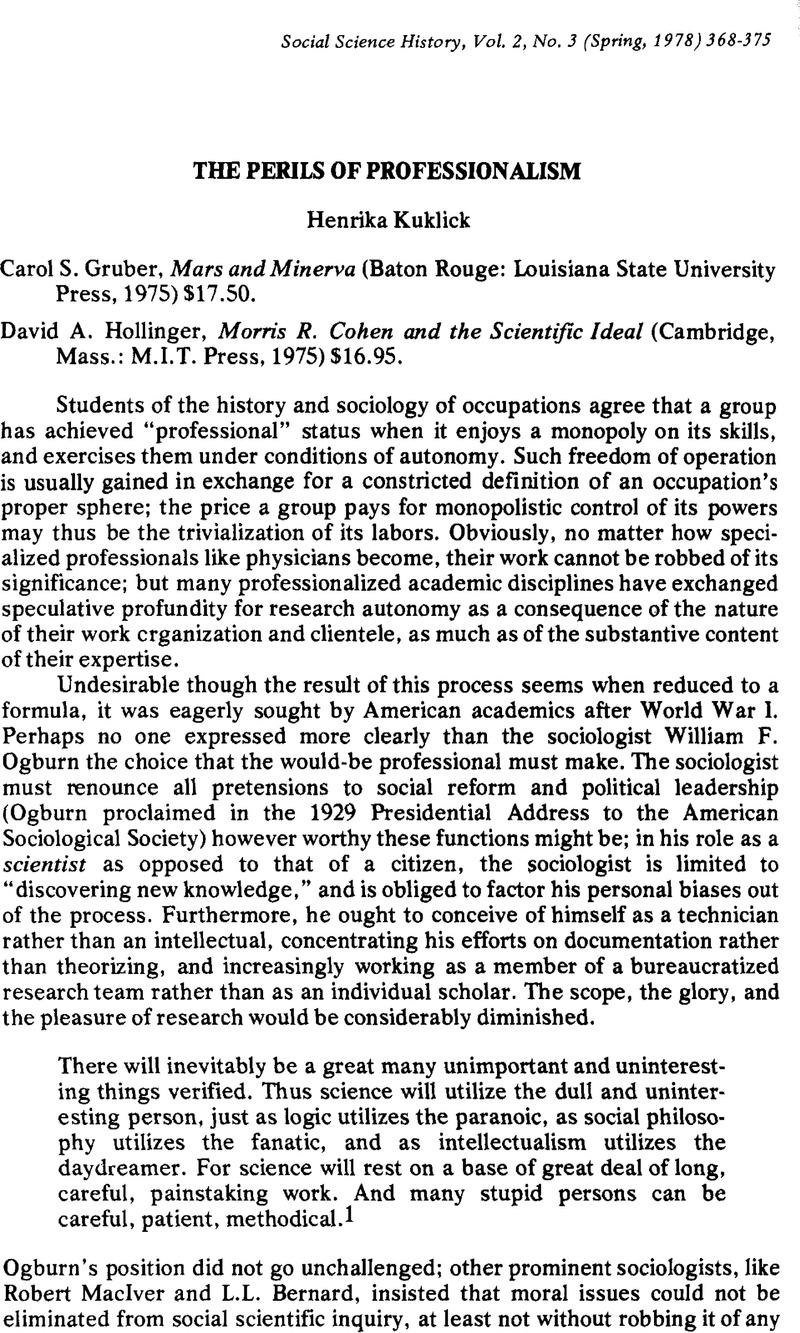No CrossRef data available.
Article contents
The Perils of Professionalism
Review products
Published online by Cambridge University Press: 04 January 2016
Abstract

Information
- Type
- Review Essays
- Information
- Copyright
- Copyright © Social Science History Association 1978
References
Notes
1 Ogburn, William F., “The Folkways of a Scientific Sociology,” Proceedings of the American Sociological Society, 24 (1930), 1–11Google Scholar. Citation on 5.
2 See, e.g., Maclver, R. M., “Is Sociology a Natural Science?” Proceedings of the American Sociological Society, 25 (1931), 25–35Google Scholar; Bernard, L.L., Presidential Address, “Sociological Research and the Exceptional Man,” Proceedings of the American Sociological Society, 27 (1933), 3–19.Google Scholar
3 See, e.g., Horowitz, Irving Louis, “Mainliners and Marginals: The Human Shape of Sociological Theory,” in Reynolds, Larry T. and Reynolds, Janice M., eds., The Sociology of Sociology (New York, 1970), 340–70.Google Scholar The article was originally published in 1967.
4 Shils, Edward, “Tradition, Ecology, and Institution in the History of Sociology,” Daedalus 99 (1970), 760–825Google Scholar, quotation on 794.
5 Robinson, James Harvey, The New History (New York, 1912), 24.Google Scholar
6 See, e.g., Becker, Carl, “Mr. Wells and The New History” and the title essay in Everyman His Own Historian (New York, 1935)Google Scholar.
7 Bernard, op. cit., 15f.
8 Shils, Edward, “Faith, Utility, and the Legitimacy of Science,” Daedalus, 103 (1974), 1015.Google Scholar

